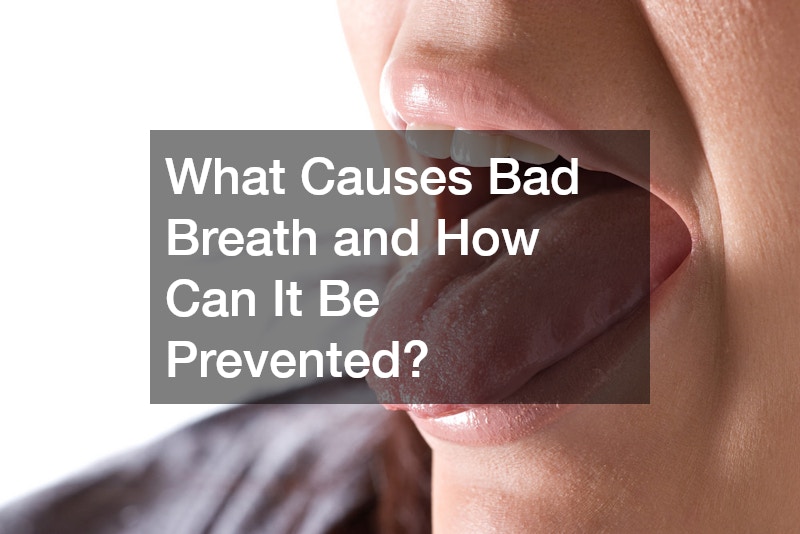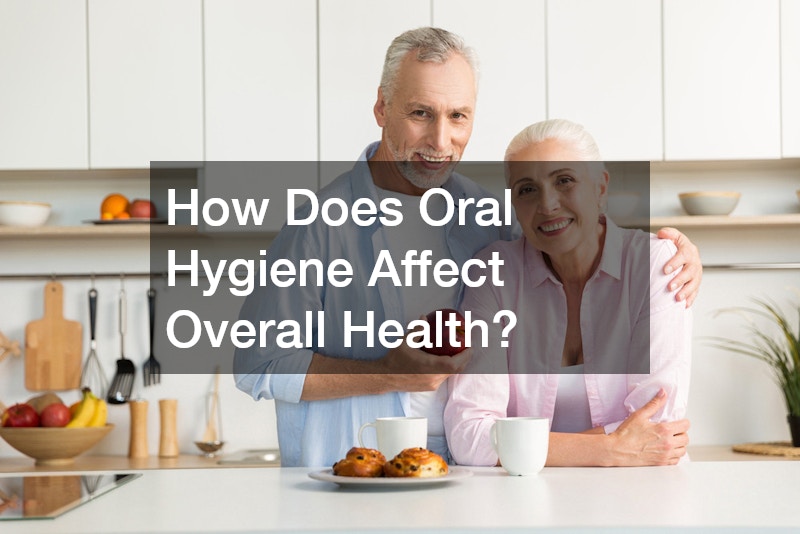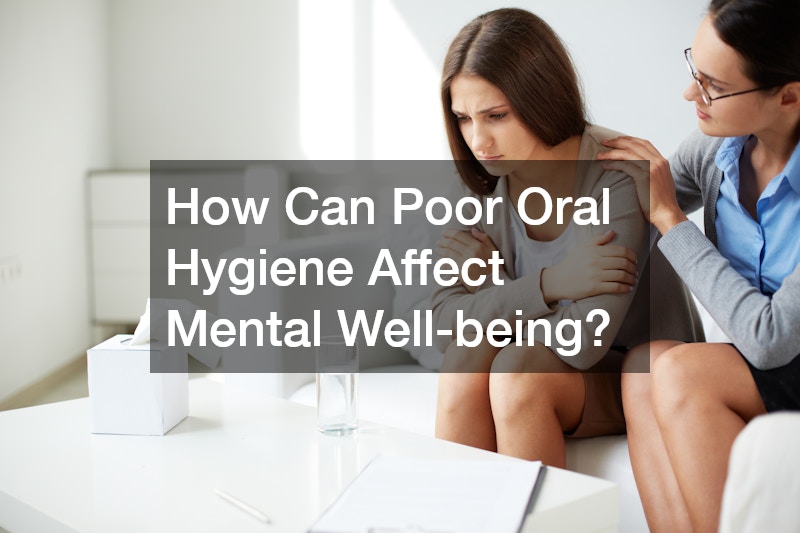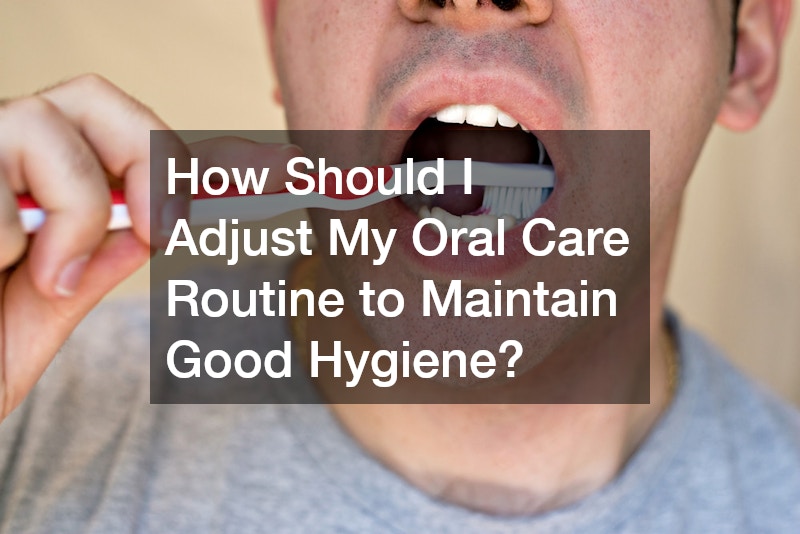
Oral hygiene is more than just maintaining a sparkling smile; it is a critical component of overall health and well-being. Neglecting oral care can lead to a range of issues, from bad breath to systemic health problems. In this comprehensive guide, we explore the signs of bad oral hygiene, their causes, and actionable steps to prevent them. From understanding how bad habits can impact your oral and general health to implementing effective preventive measures, this article will serve as a roadmap to better dental care.
1. What Causes Bad Breath and How Can It Be Prevented?

A. Understanding Halitosis
Halitosis, or persistent bad breath, is often one of the first and most embarrassing signs of bad oral hygiene. Bacteria in the mouth break down food particles, releasing unpleasant odors.
B. Link Between Poor Hygiene and Bad Breath
Skipping brushing and flossing allows these bacteria to thrive, contributing to halitosis. Dry mouth, caused by inadequate saliva production, can exacerbate the problem.
C. Effective Oral Hygiene Practices
Brushing twice daily, flossing, and cleaning the tongue are fundamental. Using an alcohol-free mouthwash can also help combat bacterial growth.
D. Dietary Changes for Fresher Breath
Certain foods, like garlic and onions, contribute to bad breath. Counteract these effects by incorporating more fresh fruits and vegetables.
E. When to See a Professional
If bad breath persists despite good hygiene practices, consult a dentist or even a professional at a medical spa for an advanced evaluation.
2. How Do Cavities Form and What Are the Warning Signs?
A. The Process of Tooth Decay
Cavities, also known as dental caries, form when harmful bacteria in the mouth break down sugars and starches from food, producing acid. Over time, this acid erodes the protective enamel on your teeth, creating small holes. If left untreated, these holes can expand, leading to pain, infection, and even tooth loss.
The process of tooth decay begins subtly, often without noticeable symptoms. Plaque, a sticky film of bacteria, plays a major role in this process. When plaque isn’t regularly removed through brushing and flossing, it hardens into tartar, which further accelerates the decay process. Poor oral hygiene and a diet high in sugar and refined carbohydrates are the main culprits.
B. Recognizing Early Symptoms
Catching cavities early is crucial to minimizing damage. One of the first signs of a developing cavity is tooth sensitivity, particularly to hot, cold, or sugary foods and drinks. You might also notice slight discoloration, such as white spots or brownish stains, on the tooth surface.
As decay progresses, the symptoms become more severe. Persistent toothaches, visible pits or holes in the teeth, and pain while chewing are strong indicators of a cavity. Sometimes, you might notice a foul taste in your mouth or experience bad breath, as decaying food particles can become trapped in these cavities.
C. Preventive Measures for Cavities
Preventing cavities requires consistent effort and a well-rounded oral hygiene routine. Brushing your teeth twice a day with fluoride toothpaste is the first line of defense. Fluoride strengthens enamel, making it more resistant to acid attacks. Flossing daily is equally important, as it removes food particles and plaque from between the teeth and along the gumline where your toothbrush cannot reach.
A healthy diet also plays a vital role in prevention. Limiting sugary snacks and drinks reduces the fuel bacteria need to produce cavity-causing acids. Instead, opt for calcium-rich foods like dairy products, leafy greens, and nuts, which strengthen teeth. Chewing sugar-free gum can also help stimulate saliva production, which naturally washes away food particles and neutralizes acids in the mouth.
Regular dental check-ups are essential to identifying and treating cavities early. Most dental offices offer affordable insurance plans or payment options to ensure preventive care is accessible to everyone. These plans often cover routine cleanings and exams, which are key to maintaining oral health and avoiding the high costs associated with advanced dental treatments.
D. The Role of Fluoride in Prevention
Fluoride is often referred to as “nature’s cavity fighter.” It strengthens tooth enamel by remineralizing weak spots and preventing acid from breaking it down further. Many communities provide fluoridated drinking water, which offers an easy and effective way to protect teeth. If your water supply lacks fluoride, your dentist may recommend fluoride treatments or mouth rinses to give your teeth an extra layer of defense.
Additionally, fluoride toothpaste and mouthwash are widely available and should be incorporated into your daily oral care routine. For children, pediatric dentists may apply fluoride varnishes to their teeth during check-ups to provide an additional safeguard against cavities.
E. Professional Treatments Available
If cavities do develop despite preventive measures, several professional treatment options are available to restore your teeth and prevent further damage. Fillings are the most common solution, using materials like composite resin or amalgam to seal and protect the damaged area. For larger cavities, crowns may be necessary to provide additional structural support to the tooth.
In more severe cases, where decay has reached the inner pulp of the tooth, a root canal may be required to remove the infected tissue and save the tooth. If the tooth is too damaged to save, extraction may be necessary, followed by a replacement option such as dental implants.
For those concerned about the financial burden of treatment, many dentists offer plans with affordable insurance options that help cover the cost of fillings, crowns, and other necessary procedures. Investing in preventive care and treatment early can save you significant expenses and discomfort in the long run.
By understanding how cavities form and taking proactive steps to prevent them, you can maintain a healthy, pain-free smile. Early detection, proper oral hygiene, and regular dental visits are the keys to protecting your teeth and avoiding the discomfort and complications associated with tooth decay.
3. Why Is Gum Bleeding a Concern?
A. Common Causes of Gum Bleeding
Bleeding gums are often a sign of gingivitis, the earliest stage of gum disease. Poor brushing techniques, hormonal changes, or medications can also contribute.
B. Connection to Gum Disease
Untreated gingivitis can progress to periodontitis, a severe condition that can result in tooth loss.
C. Effective Home Remedies
Saltwater rinses and using soft-bristled toothbrushes can alleviate mild symptoms.
D. Importance of Regular Dental Check-ups
Routine visits to the dentist can detect and treat gum disease early, preventing long-term complications.
E. Long-term Implications of Ignoring Symptoms
Ignoring bleeding gums can lead to more serious health problems, such as cardiovascular disease.
4. How Does Oral Hygiene Affect Overall Health?

A. Oral-Systemic Health Link
The mouth is often referred to as the “gateway to the body.” Bacteria from oral infections can enter the bloodstream, affecting other organs.
B. Impact on Heart Disease
Studies have shown that poor oral hygiene is linked to an increased risk of heart disease.
C. Diabetes and Oral Health
Gum disease can make it harder to control blood sugar levels, and diabetes can exacerbate gum problems.
D. Respiratory Conditions Related to Oral Health
Bacteria from the mouth can travel to the lungs, contributing to respiratory infections.
E. Importance of a Holistic Approach
Adopting a whole-body wellness perspective that includes oral health is essential for long-term rejuvenation.
5. What Are the Visible Signs of Bad Oral Hygiene?
A. Stained Teeth: Causes and Prevention
Discolored teeth can result from poor brushing, smoking, or consuming staining beverages like coffee and tea. Whitening treatments through cosmetic dentistry can reverse these effects.
B. Persistent Dry Mouth
Chronic dry mouth may indicate underlying health conditions or medication side effects.
C. Swollen or Red Gums
Inflammation is a clear sign of gum disease and should not be ignored.
D. Loose Teeth or Toothaches
Advanced gum disease or untreated cavities can result in loose teeth, potentially requiring dental implants for restoration.
E. Presence of Oral Lesions
Sores that do not heal within two weeks should be evaluated by a healthcare professional.
6. Are There Specific Dental Issues Associated with Age?
A. Oral Health in Children
Children are prone to cavities due to their love for sugary snacks. A child care program focusing on dental education can instill healthy habits early.
B. Common Teen Dental Concerns
Orthodontic issues and wisdom teeth are common in adolescence. Regular check-ups are key.
C. Adults and Oral Hygiene Challenges
Busy lifestyles often lead adults to neglect routine care, increasing the risk of gum disease.
D. Elderly Oral Health Issues
Dry mouth, tooth loss, and difficulty chewing are frequent concerns among seniors.
E. Lifelong Dental Care Tips
Investing in preventive care at every stage of life ensures long-term dental health.
7. How Can Poor Oral Hygiene Affect Mental Well-being?

A. Link Between Dental Health and Self-Confidence
A healthy smile boosts self-esteem, while the signs of bad oral hygiene can cause embarrassment and social withdrawal.
B. Social Anxiety and Oral Hygiene
Bad breath or visible dental issues can lead to heightened self-consciousness in social situations.
C. Psychological Impact of Dental Pain
Chronic dental issues can affect focus, mood, and overall quality of life.
D. Stress, Anxiety, and Oral Health
Stress can lead to teeth grinding, which damages enamel and worsens dental health. A professional who went to esthetician school is typically able to spot imperfections in the jaw from teeth grinding.
E. Strategies for Improving Health and Confidence
Professional treatments, like teeth whitening or chin filler to enhance facial symmetry, can help restore confidence.
8. What Are the Consequences of Skipping Dental Appointments?
A. Deterioration of Oral Health
Avoiding the dentist allows small issues to escalate into major problems.
B. Increased Risk of Severe Dental Problems
Athletes, for instance, often require specialized care for dental injuries sustained during athletics.
C. How to Overcome Dental Anxiety
Discussing fears with your dentist and exploring sedation options can make visits more comfortable.
D. Scheduling Regular Check-ups
Biannual dental visits are recommended for most individuals to ensure comprehensive care.
E. What to Expect During a Professional Cleaning
Thorough cleanings remove plaque, tartar, and bacteria, promoting a healthier smile.
9. How Do Lifestyle Choices Impact Oral Health?
A. Effect of Smoking on Oral Health
Smoking stains teeth, causes bad breath, and increases the risk of gum disease and oral cancer.
B. Oral Implications of Alcohol Consumption
Alcohol can dry out the mouth and lead to enamel erosion.
C. Role of Diet in Oral Hygiene
A balanced diet rich in calcium and vitamin D supports strong teeth and gums.
D. Impact of Recreational Drugs on Dental Health
Substances like methamphetamine can cause severe tooth decay, often referred to as “meth mouth.”
E. Building Healthier Habits
Small lifestyle changes can make a big difference, like swapping sugary drinks for water.
10. How Should I Adjust My Oral Care Routine to Maintain Good Hygiene?

A. Importance of Regular Brushing and Flossing
These simple practices remain the cornerstone of good oral hygiene.
B. Choosing the Right Dental Products
Consult your dentist to select toothpaste and brushes suited to your needs.
C. Additional Cleaning Techniques
Interdental brushes and water flossers can enhance your cleaning routine.
D. Integrating Oral Rinses into Routines
Using a mouthwash with antibacterial properties can help maintain fresh breath and reduce plaque.
E. Customizing Care for Individual Needs
Whether it’s addressing sensitive teeth or exploring cosmetic dentistry, personalizing your routine ensures optimal results.
Maintaining good oral hygiene is essential not only for achieving a bright, healthy smile but also for protecting your overall well-being. Recognizing the signs of bad oral hygiene, such as bad breath, cavities, or gum disease, is the first step toward taking control of your dental health. Poor oral hygiene doesn’t just impact your teeth and gums—it can lead to systemic health issues, lower self-confidence, and even affect your mental well-being.
By adopting preventive measures, such as regular brushing, flossing, and dental check-ups, you can avoid these complications. Professional treatments like dental implants and cosmetic dentistry offer effective solutions for restoring oral health when problems arise. Incorporating healthy lifestyle habits and exploring affordable insurance options make dental care accessible and sustainable for everyone.
Your smile is one of your most valuable assets, and investing in its care enhances not only your appearance but also your confidence and quality of life. Make oral hygiene a priority and experience the benefits of a healthier, happier you.